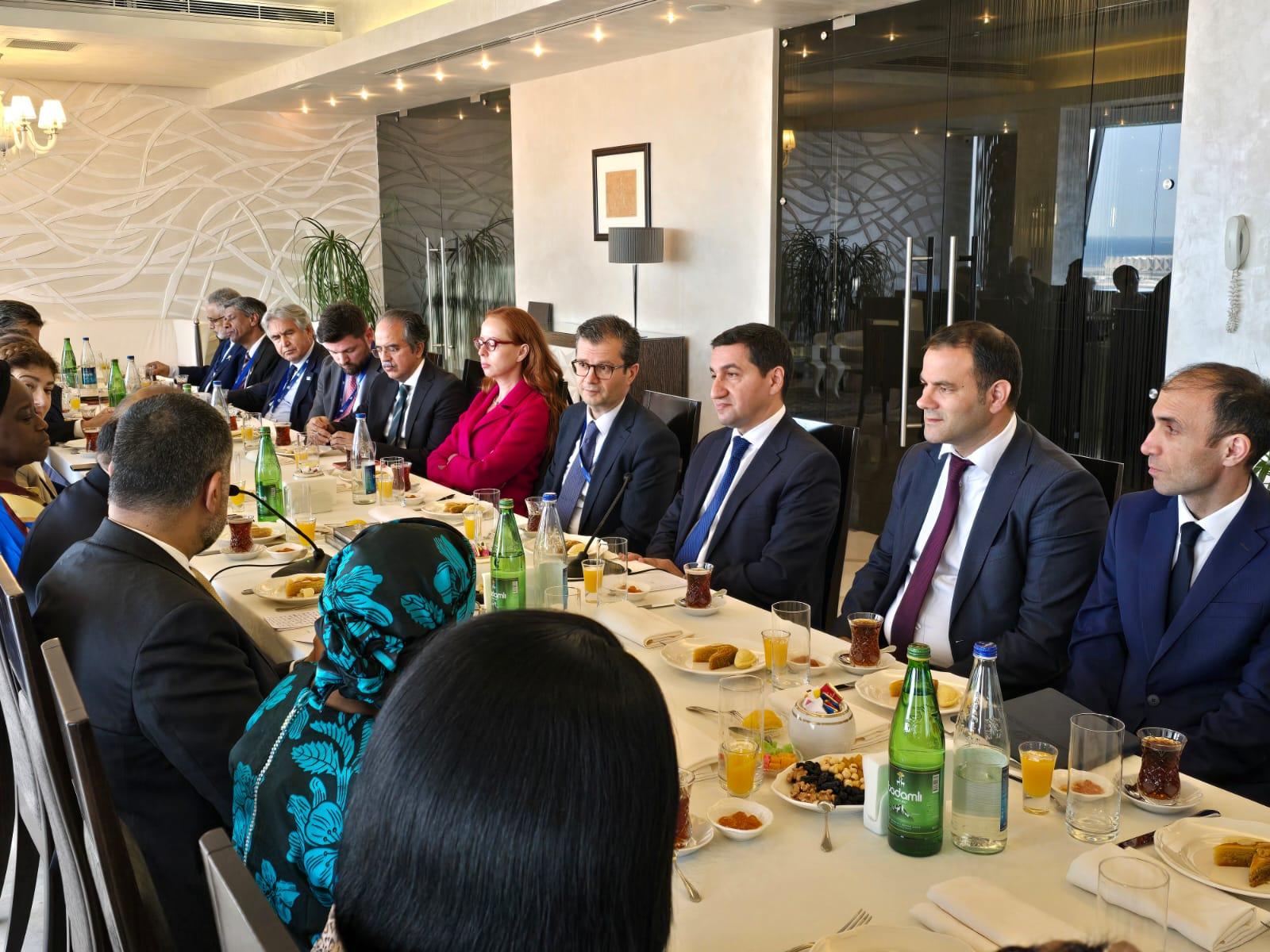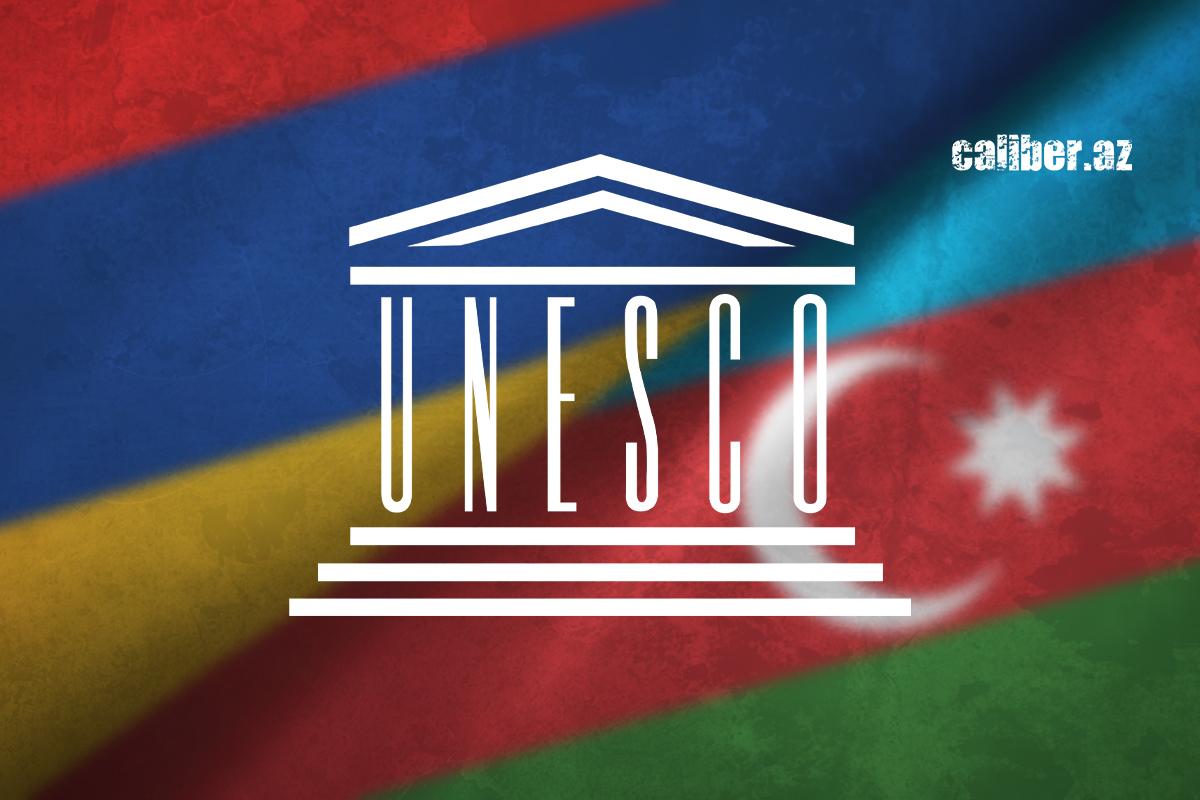Will Azerbaijan's diplomatic efforts bring change? UNESCO's crucial crossroad
As earlier reported, Hikmat Hajiyev, Assistant to the President of Azerbaijan, Head of the Foreign Policy Affairs Department of the Presidential Administration, held discussions with permanent representatives/ambassadors of UNESCO member countries. He made a corresponding post on his official X account due to which it became known that Hajiyev informed the UNESCO representatives of Azerbaijan's regional peace agenda and cultural diplomacy policy, as well as about the destruction of Azerbaijani cultural and religious heritage by Armenia during the years of occupation.
All this was very important and timely, because we see how certain forces, including in the US Congress, are trying to distort the essence and results of the Armenia-Azerbaijan conflict, to devalue the historical process of restoring the territorial integrity of Azerbaijan, as well as the fact that at the moment there are prerequisites for signing a peace agreement between Baku and Yerevan. At the same time, the delimitation and demarcation of the border is carried out on the basis of agreements reached between the two countries, without any mediators.
The process is actively underway, with 38 border pillars already erected. Despite provocations from Armenian revanchists and the global Armenian community, Baku and Yerevan are progressing towards peace. It was crucial to once again convey this information directly to representatives/ambassadors of UNESCO member countries. Additionally, Mr Hajiyev's briefing on the destruction of Azerbaijan’s cultural and religious heritage by Armenia during the years of occupation was important.

Previously, in his opening remarks at the 6th World Forum on Intercultural Dialogue, President Ilham Aliyev stated that after nearly 30 years of suffering and violation of international law, including the complete destruction of all cultural and historical sites—65 out of 67 mosques—by Armenian vandals, Azerbaijan forcefully liberated its territories despite strong opposition from Armenia's sponsoring countries.
This speech by the president was heard by representatives from 110 countries worldwide who attended the Forum, organized by the government of Azerbaijan in partnership with various international organizations, including UNESCO. This fact highlights the accuracy of Hajiyev's assertion that the Azerbaijani government collaborates with various international organizations, including UNESCO. Hajiyev is correct in stating that "UNESCO belongs to all of us and thewhole international community." Indeed, there is cooperation between Azerbaijan and UNESCO. For instance, last November, Azerbaijan was elected as a member of the International Coordinating Council of UNESCO's Man and Biosphere Program for 2023-2027. The country secured membership in UNESCO Council with 110 votes. However, there were certain challenges in the relationship between Azerbaijan and UNESCO, primarily associated with the activities of the Director-General of UNESCO, former Minister of Culture and Communications of France, Audrey Azoulay.

"UNESCO cannot be turned into a tool in the hands of any single person or reduced to the level of a department of the ‘Ministry of Foreign Affairs’ of any country," Hajiyev posted.
Considering Madame Azoulay's position, immediately following the 44-day war, she opted to act not as the head of UNESCO but as a representative of Macron's France. France, in turn, abandoned its policy of balance in relations between Baku and Yerevan, making a clear and erroneous choice in favor of Armenia. It suffices to recall the scandalous false accusations against Azerbaijan made by French President Emmanuel Macron during the 44-day war. Furthermore, immediately after the signing of the trilateral statement on November 10, 2020, there was a provocation by the French Senate. The Senate adopted a resolution urging the government of France to recognize the "independence" of what the Armenian side persistently refers to as "Artsakh". Even at that time, this resolution held no real weight, and its significance has only diminished since.
As for Madame Azoulay, it was during her tenure as UNESCO Director-General, Baku witnessed the rebroadcasting of false Armenian claims regarding the alleged destruction of "Armenian cultural monuments" by Azerbaijan. This situation ultimately led to the decision by First Vice-President of Azerbaijan, Mehriban Aliyeva, to terminate her activity as a UNESCO Goodwill Ambassador in November 2022.
This decision was justified. After all, Baku had granted consent for a UNESCO mission to visit the country, particularly the liberated territories. However, the visit never materialized due to "uncertainty about the ownership of the territory where the visit was to be organized". In essence, UNESCO's failure to recognize Azerbaijan's territorial integrity amounted to open support for Armenia's invasive policies. Now that Armenia itself acknowledges the territorial integrity of Azerbaijan and active efforts are underway to delimit and demarcate the border, we rightfully anticipate a significant shift in UNESCO's stance. This should be demonstrated through the dispatch of a UNESCO mission to Shusha and other liberated territories of the country to document the evidence of Armenian vandalism. By doing so, UNESCO can shed its image as an appendage to the foreign policy agendas of individual nations.








